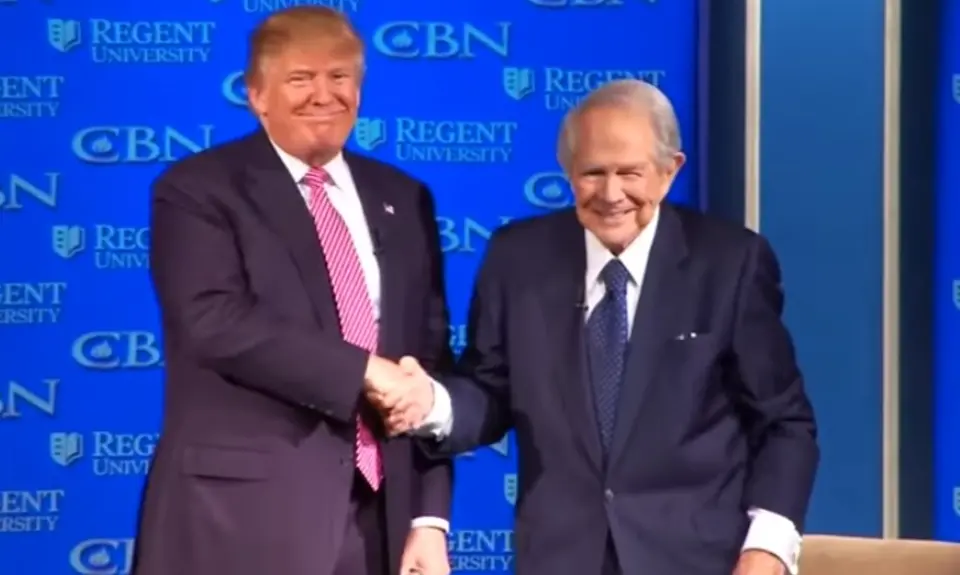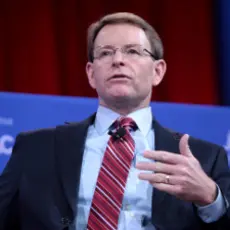It will be difficult for Religious Right leaders to position themselves as the principled guardians of “family values” after tying their political fortunes so closely with those of Donald Trump.
They have given their blessing to a candidate who regularly berates and demeans women, people with disabilities, and racial and religious minorities, who in the past has mocked Jesus and boasted that he never seeks forgiveness, and who seems to completely lack any sense of decency, humility or morality.
Even after a tape revealed that Trump once bragged about sexually assaulting women, Religious Right leaders stood by him. The only prominent defector eventually re-endorsed the candidate. Some have gone so far as to refer to Trump as God’s anointed candidate, and at least one prominent pastor has actually hailed him for ignoring Jesus’ teachings.
The modern Religious Right movement actually started as a reaction to integration.
It’s almost as if there is nothing Trump can do that would shock his defenders in the Religious Right movement, who are counting on a President Trump to appoint hard-right Supreme Court justices and sign conservative legislation.
They even seem ready to forfeit years of work attempting to paint the anti-abortion cause as a feminist initiative and to use social issues such as marriage to attract African American and Latino voters. Trump has fallen far behind Hillary Clinton among women and nonwhite voters, including nonwhite evangelicals.
But getting in bed with Trump wasn’t as big of a jump for the Religious Right as some might think.
The GOP presidential nominee’s appeals to racial resentments and immersion in the world of far-right conspiracy theories line up quite nicely with the Religious Right’s worldview.
While the movement has told its supporters that it started as a response to abortion rights and the separation of church and state, the modern Religious Right movement actually started as a reaction to integration.
Decades before the current paranoia about LGBT and women’s rights somehow contributing to anti-Christian persecution, right-wing activists employed rhetoric about religious liberty and government overreach to defend their private segregated academies and deride efforts to “redefine” marriage to include couples of different races.
Evangelists such as Jerry Falwell and Bob Jones explicitly preached racial separation and opposition to the civil rights movement. Falwell opened a segregated school in response to efforts to integrate Virginia’s education system. Jones’ university openly practiced racial discrimination for decades, citing the Bible.
In fact, the modern Religious Right movement emerged as a political force not to fight abortion rights, as many of its supporters routinely claim, but to protect segregated private schools and institutions like Bob Jones University from losing tax-exempt status because of their racist policies, claiming that losing tax-exempt status constituted a government attack on their religious beliefs.
Religious Right favorites like former Gov. Mike Huckabee, Alabama Supreme Court Chief Justice Roy Moore and Family Research Council head Tony Perkins courted a well-known segregationist group, and pamphlets such as “Segregation: God’s Plan and God’s Purpose” and “God: The Original Segregationist” portrayed integration as a direct attack on God and biblical commandments.
Only later did issues like abortion and homosexuality emerge as the movement’s rallying cries.
Trump, much in the tradition of conservative stalwarts like Jesse Helms and George Wallace, has stoked outrage about social progress, and has run a campaign based on the demonization of Latinos and African Americans.
Trump’s warnings about a global conspiracy of powerful bankers, media barons and secret puppet masters seeking to take down his campaign and destroy America resemble past and current conspiracy theories popular on the far Right that are often ridden with anti-Semitic imagery. His remarks about nefarious elites quashing U.S. freedom and sovereignty to create “a world government“ mirror the conspiratorial warnings about a coming “New World Order“ from televangelists such as Pat Robertson and
;}}">John Hagee.
Fortunately, just as Trump’s rhetoric only appeals to a shrinking share of voters, the Religious Right’s politics are increasingly unpopular with voters who don’t see LGBT people and women’s rights as civilizational threats.
The Religious Right’s embrace of Trump will not only make it more difficult for them to be seen as credible defenders of the family, but will also prevent them from ignoring the movement’s past ties to white nationalism.








